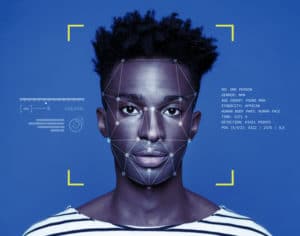26 California legislators was incorrectly matched in a rest test of a facial recognition program
Technology is ever-evolving, and becoming a greater part of our everyday lives. This is true in almost every aspect of our lives, from the cars that we drive to the way that we pay for our kids’ school lunches to how we get our groceries. Increasingly, technology is being used by law enforcement to investigate crime.
But should we be so eager to adopt new technologies in order to fight crime? A recent study by the American Civil Liberties Union (ACLU) raises serious questions about the use of facial recognition software by California law enforcement.
The ACLU ran pictures of California state legislators against a database of 25,000 publicly-available booking photos. 26 California legislators were incorrectly matched with mug shots as part of this study. One of the legislators, Assemblyman Phil Ting, a Democrat from San Francisco, has already proposed a bill, Assembly Bill 1215 (AB 1215) to ban facial recognition software from being used on police body cameras.
According to Ting and other supporters of AB 1215, the ACLU study proves what they have long claimed: this type of technology is unreliable. The bill would ban law enforcement officers from using it in the body cameras that they wear while on duty.
In addition to the unreliability of this software, a criminal lawyer San Bernardino, CA reports that there is little federal regulation of this technology. California does not have a statewide law that would protect its residents’ privacy. In addition, there are concerns that this type of software has difficulty in accurately identifying women, people of color and young people. Because these communities — particularly communities of color — have historically been targeted by the police, the potential use of facial recognition software that may led to false arrests raises red flags for many legislators.
Some government agencies are already reportedly using this technology, including Immigration and Customs Enforcement (ICE). Photographs that are already available to the government, such as driver’s license photos, are typically used for the software. If California succeeds in banning the use of facial recognition software, it would be the largest state to do so.
The question of whether facial recognition software can or should be used in California is an important one. If allowed, it would effectively turn every police officer wearing a body camera into a surveillance machine, scanning crowds of people to determine if any of them are potential suspects. With the failure rate for this technology so high, it is even more critical that California works to protect its citizens from having their privacy compromised in this manner.
The Chambers Law Firm represents clients who have been charged with felony and misdemeanor crimes. We offer highly skilled, personalized representation. Contact our firm today at 714-760-4088 or dchambers@clfca.com to schedule a free initial consultation with a criminal lawyer San Bernardino, CA.





